Loss of Appetite in Pets: When Skipped Meals Signal a Bigger Problem
Cats and dogs rarely refuse dinner. So, what does it mean when they suddenly turn away from food? Missing one meal may not be serious, but refusing food for more than a day can be a sign of illness. At Mission Veterinary Clinic, we often see families unsure whether to wait it out or come in right away. Knowing when to worry about appetite loss helps you protect your pet before small problems become urgent ones.
Understanding Appetite Loss in Pets
Why Appetite Loss Matters
When your pet suddenly loses interest in food, their body is often sending an important message. Unlike humans who might skip meals for emotional reasons or busy schedules, pets typically eat when food is available unless something is genuinely wrong. This makes appetite loss one of the most reliable early warning signs of illness.
Early intervention often means simpler treatments, better outcomes, and lower costs. What starts as a minor digestive upset can escalate into serious complications if left untreated, particularly in cats who can develop hepatic lipidosis when they stop eating for just a few days.
Common Causes of Appetite Loss
- Medical conditions often cause pets to refuse food. Dental disease can make chewing painful. Infections can cause nausea and malaise, and gastrointestinal issues- from stomach upset to blockages- commonly present with appetite loss. Illnesses like kidney disease or heart problems can also reduce a pet’s desire to eat.
- Stress and environmental changes can temporarily affect eating. Moving, introducing a new pet, or routine changes may reduce appetite for a few days.
- Aging can naturally affect appetite. Senior pets may eat less due to decreased activity, medication side effects, or developing health conditions. Recognizing senior pet health problems helps ensure timely testing and treatment adjustments.
When to Seek Veterinary Care
Key Signs to Look For
The 24-hour rule is a good guideline. Any pet refusing food for more than a day warrants veterinary attention- sooner if other symptoms are present.
Watch for lethargy in dogs or lethargy in cats, vomiting, diarrhea, excessive drooling, or changes in urination, as these elevate urgency.
Cats need special attention. Feline vomiting with appetite loss can signal serious disease, and overweight cats who stop eating entirely are at risk for rapid liver problems.
Emergency Situations
Some situations require immediate care regardless of timing. Animal emergencies requiring immediate veterinary care include severe vomiting, abdominal bloating, difficulty breathing, or signs of pain like a hunched posture or reluctance to move.
If you notice dehydration (sticky gums, skin that doesn’t snap back when lifted), disorientation, pale gums, or distress, seek help immediately. Mission Vet Clinic provides comprehensive emergency services just for these situations.
Home Evaluation and Care
Conducting a Home Exam
You can gather helpful information with a simple assessment. A home exam for a sick dog can reveal symptoms that aren’t immediately obvious.
- Check gum color and moisture. Healthy gums are pink and moist.
- Note breathing patterns, energy levels, and any tender areas.
- Check for dehydration by gently lifting the skin at the neck. It should snap back quickly.
- Observe behavior at the food bowl. Approaching but walking away, or showing interest but seeming unable to eat, are useful clues to share during your visit.
Initial Steps to Encourage Eating
If your pet seems otherwise well, gentle encouragement may help. Picky eaters may respond to slightly warmed food to boost aroma.
Offer small amounts of highly palatable options like plain cooked chicken or low-sodium broth. Avoid forcing food or making dramatic dietary changes without guidance.
Diagnostic and Treatment Options
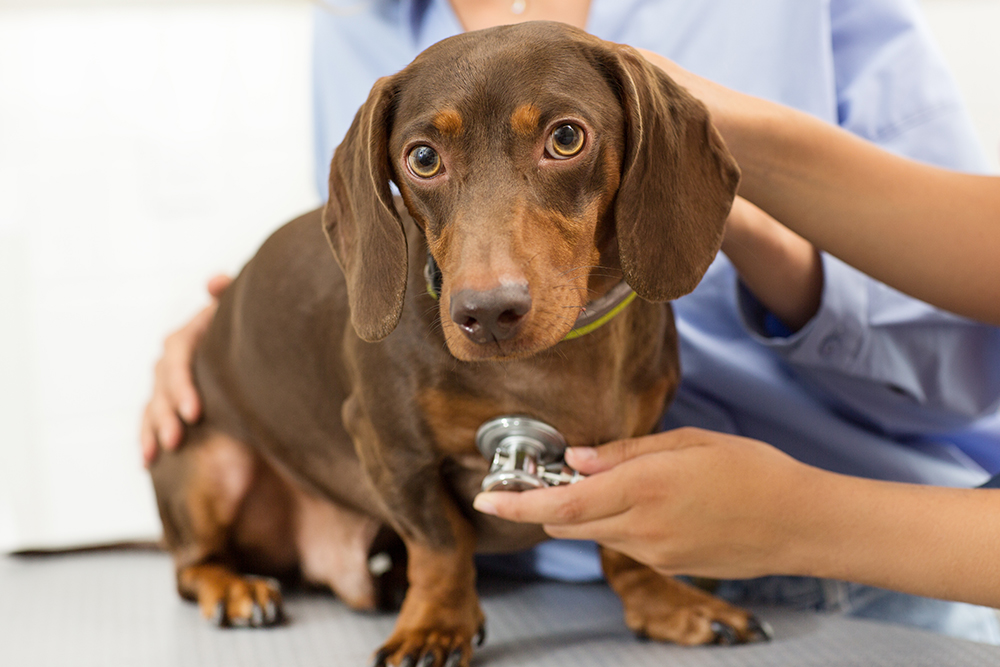
Veterinary Diagnostics
Expect a thorough exam that looks beyond the mouth and stomach. Blood work is critical for gaining more information about vague symptoms. These tests can reveal infections, organ dysfunction, or metabolic issues not visible externally.
Depending on findings, diagnostics may include X-rays, ultrasound, or other imaging. These are part of the advanced services we provide to get answers quickly.
Treatment Strategies
Treatment varies by cause. Some cases resolve with dietary adjustments or short-term medication. Others require targeted therapy for dental disease, infections, or chronic conditions. The range of conditions treated reflects the many issues that can lead to appetite loss.
Some pets benefit from appetite stimulants while the underlying issue is addressed. Others recover appetite once pain, nausea, or disease is treated.
Prevention and Long-term Care
Choosing the Right Diet
Prevention starts with nutrition tailored to life stage and health status. Healthy tails: how to choose the right food for your pet considers age, activity, and medical needs.
Quality nutrition supports overall health and can help prevent problems that lead to appetite loss. During routine wellness visits, we’ll help ensure your pet’s diet fits their needs and avoids potential sensitivities.
Regular Veterinary Visits
Routine checkups help detect subtle changes early and establish baselines for weight, body condition, and lab results. This makes it easier to spot meaningful shifts.
Monitoring and Adjustment
Track eating habits, weight, and overall condition so you can catch changes quickly. A pet calorie calculator can help maintain a healthy weight, making appetite shifts more noticeable.
Taking Action When Your Pet Won’t Eat
Appetite loss lasting more than 24 hours- especially with lethargy, vomiting, or behavioral changes- signals the need for professional evaluation. Cats who stop eating, pets in pain, or animals with severe symptoms like breathing difficulty require immediate care.
Mission Veterinary Clinic offers comprehensive diagnostics and urgent care to identify and treat the causes of appetite loss. Our team performs blood work, imaging, and thorough exams to determine why your pet isn’t eating and to create an effective treatment plan.
If your pet has stopped eating, contact us to discuss symptoms and schedule an appointment. Bring a list of medications, the timeline of appetite changes, and any other observations.
Mission Veterinary Clinic: (747) 800-5706
Take the first step toward helping your pet by scheduling a wellness visit today. Our experts are here to answer your questions and provide the care your pet needs.
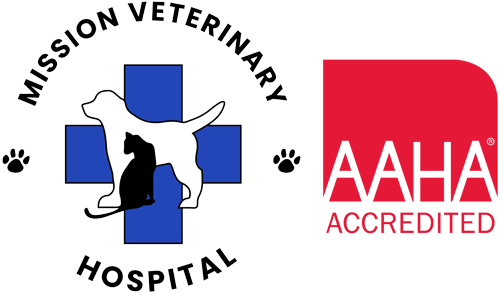
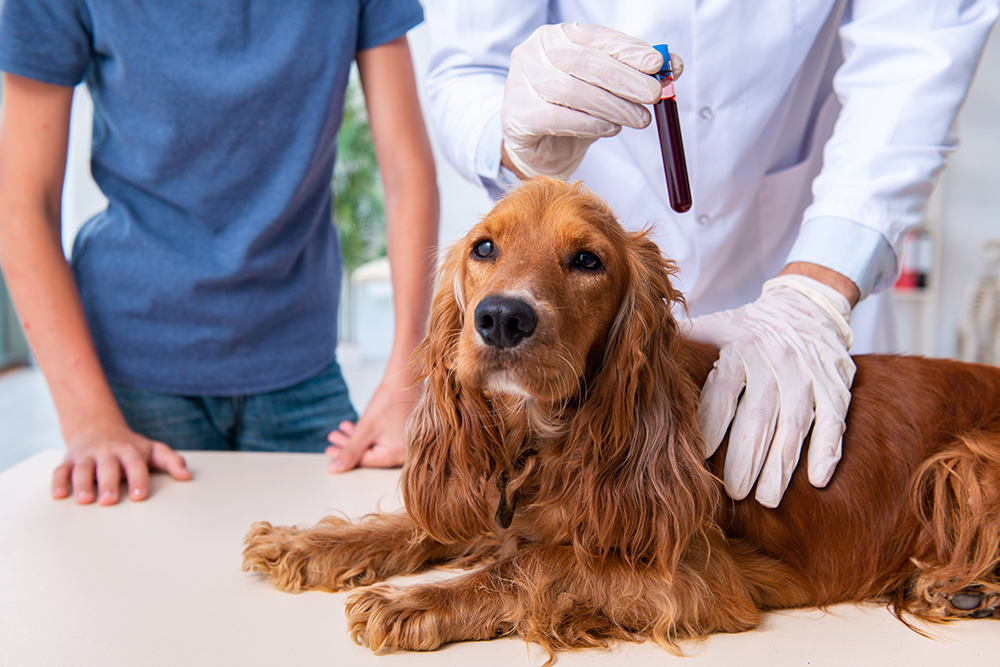

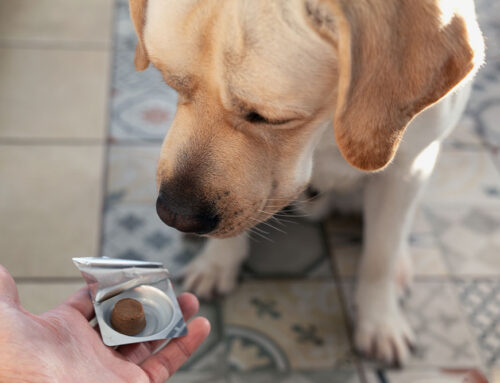
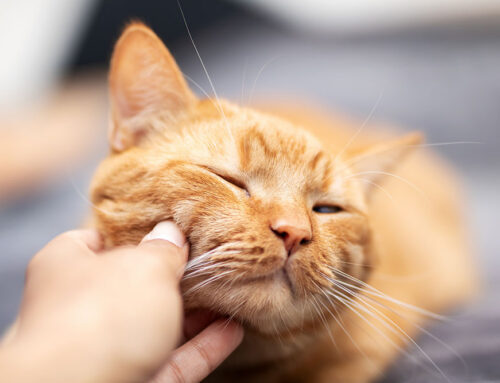
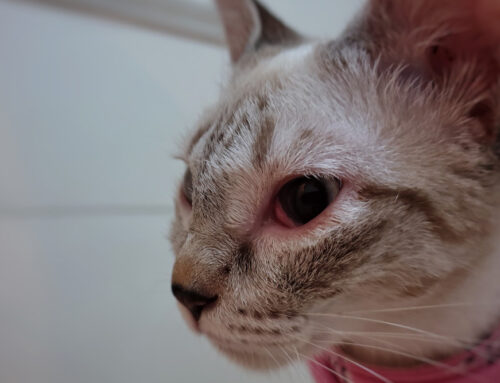




Leave A Comment